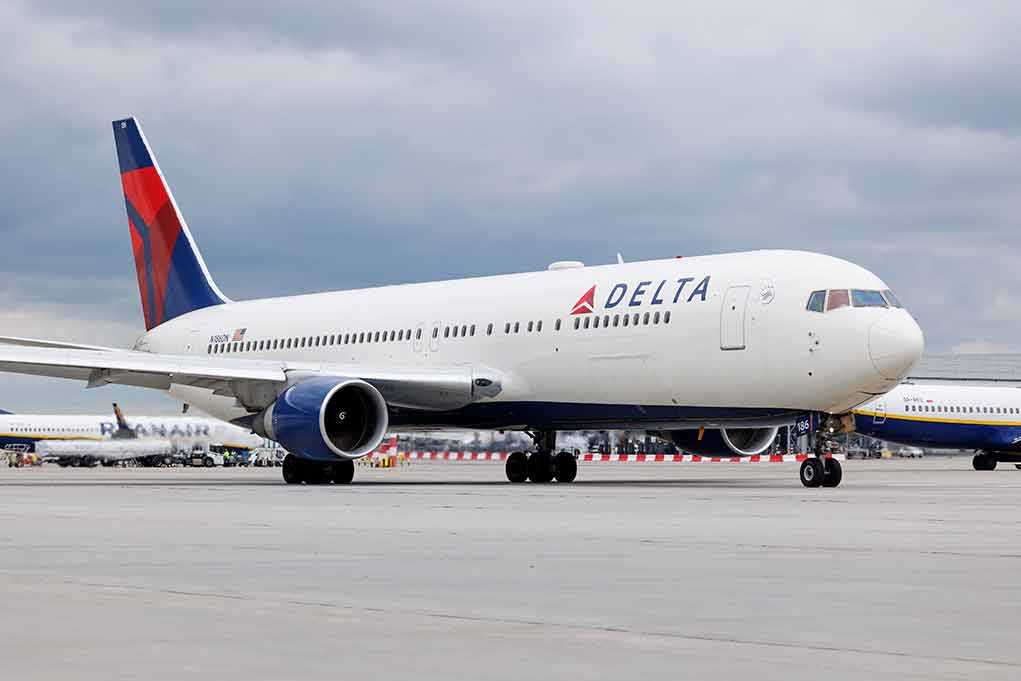
Delta Airlines was forced to yank 100 planes from service and cancel nearly 1,000 flights after severe thunderstorms and hail battered its Atlanta hub, leaving thousands of passengers stranded with no assistance in sight.
Key Takeaways
- Delta Airlines cancelled nearly 1,000 flights, including 581 on June 28 and 366 on June 27, due to severe weather at its Atlanta hub.
- Over 100 aircraft were temporarily pulled from service to undergo inspections for potential hail damage, with most returning to service by Saturday.
- The FAA evacuated most personnel from Atlanta airport’s control tower due to dangerous wind conditions, leaving only two controllers to manage inbound flights.
- Many passengers reported being stranded overnight with inadequate communication from Delta representatives and insufficient accommodations as local hotels filled up.
- Delta has promised reimbursements for hotel stays, rental vehicles, and other expenses for affected travelers.
Severe Weather Cripples Delta’s Atlanta Hub
Violent thunderstorms slammed Atlanta’s Hartsfield-Jackson International Airport on Friday evening, triggering a cascade of flight disruptions that continued throughout the weekend. The extreme weather event, which included lightning, hail, and dangerous microburst winds, forced air traffic controllers to implement a ground stop from 7:11 to 8:30 p.m. on Friday, halting all takeoffs and landings. Delta, which operates approximately 900 daily flights through Atlanta, bore the brunt of the disruption as the airport’s dominant carrier.
The severity of the storm prompted the Federal Aviation Administration to evacuate most personnel from the Atlanta airport control tower, leaving just two controllers to manage incoming flights. Flash flooding compounded the chaos, with the airport recording nearly an inch of rain in a single hour. The deluge was so intense that northbound lanes on Interstate 75 near the airport were temporarily closed due to standing water, further complicating travel for those attempting to reach or leave the airport.
Aircraft Safety Concerns Amplify Disruptions
In a decisive move prioritizing passenger safety, Delta temporarily removed approximately 100 aircraft from service to inspect for potential hail damage. Maintenance crews worked through the night to complete thorough inspections of the affected planes. The airline reported that “nearly all” aircraft were returned to service by Saturday, though the inspection process significantly reduced available aircraft across the network, leading to a ripple effect of cancellations and delays.
“By early this morning, our world-class maintenance team had already returned many aircraft to service after thorough overnight inspections,” said Erik Snell, Delta’s Senior Vice President of Operations.
The storm’s aftermath resulted in over 380 system-wide cancellations on Saturday alone, with Delta warning passengers to expect additional delays and cancellations as the airline worked to reset aircraft positioning and ensure flight crews received mandatory rest periods. FlightAware tracking data showed staggering disruption, with over 1,000 delays and more than 170 cancellations at the Atlanta airport on Friday evening.
Passengers Left Stranded Amid Communication Failures
As the operational crisis unfolded, thousands of passengers found themselves stranded at the airport with little information or assistance. Many reported sleeping on airport floors after being unable to secure hotel accommodations in the area. Travelers expressed frustration over what they described as a lack of communication and support from Delta representatives during the disruption, compounding the stress of unexpected travel delays.
“There were just no Delta representatives around to give you an indication of where to go or what to do,” said Brian Barnett, a stranded passenger.
The airline eventually issued statements acknowledging the widespread disruption and promised accommodations and reimbursements for affected customers. Delta advised passengers to use the Fly Delta app for the most current travel updates as the airline deployed over 100,000 personnel in efforts to normalize operations at its largest hub. Despite these efforts, the weekend travel plans of thousands remained in disarray as the airline struggled to recover from the weather event.
Recovery Efforts and Customer Compensation
Delta has promised to provide accommodations, vouchers, and rental car reimbursements for customers affected by the cancellations. In a statement addressing the disruptions, the airline acknowledged the significant impact on travelers while emphasizing their commitment to safety during the severe weather event. The company indicated that their teams were “working as safely and quickly as possible” to recover from the disruptions, though the process would take time to fully resolve.
“Teams across Delta are hard at work to take care of customers and recover our operation following a major weather event at our Atlanta hub June 27,” stated Delta, in an official statement.
For many travelers, the promised reimbursements offered little immediate relief as they faced unexpected hotel stays, meal expenses, and the frustration of missed connections and altered travel plans. The incident highlights the vulnerability of the modern air travel system to severe weather events, particularly when they impact major airline hubs like Atlanta, where disruptions can quickly cascade throughout the entire network.
















